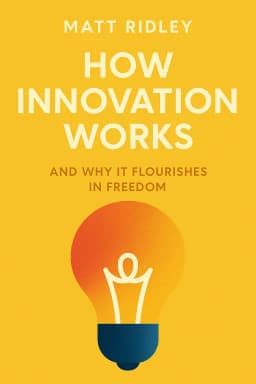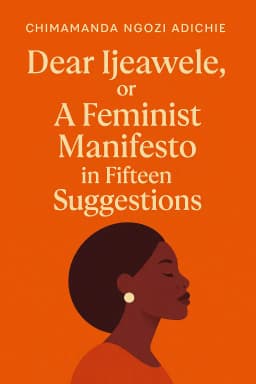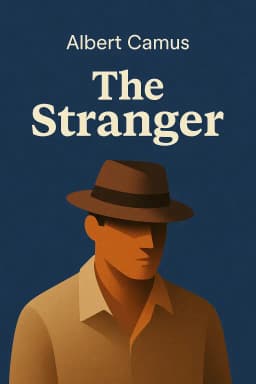
The Myth of the Lone Genius
Golden Hook & Introduction
SECTION
Michael: Everything you think you know about Thomas Edison is probably wrong. He didn't invent the light bulb. Or, more accurately, about twenty other people did, at the exact same time. And that simple fact changes everything about how we see progress. Kevin: Hold on, twenty people? At the same time? That sounds like a conspiracy theory. Are you telling me the iconic image of Edison having a 'eureka' moment in his lab is a complete fabrication? Michael: It’s not a fabrication, but it’s only a tiny piece of a much bigger, more interesting story. It's a wild idea, and it’s the central theme of a fascinating and pretty controversial book we're diving into today: The Evolution of Everything by Matt Ridley. Kevin: Right, and Ridley is an interesting character to be writing this. He’s not a historian or an economist by training; he’s a zoologist from Oxford. He even served in the UK's House of Lords. So he's coming at this with a biologist's eye for evolution, but applying it to... well, everything. Michael: Exactly. And that unique lens is what makes the book so provocative. He argues that just like life, our technology, our economy, even our morality, all evolve from the bottom up, without a master plan. Let's start with that Edison story, because it perfectly captures his first big idea.
The Inevitable Invention: Why Technology Evolves, Not Gets Invented
SECTION
Michael: Ridley sets the scene in the late 19th century. Electricity is becoming more common, but lighting is still a nightmare—flickering gas lamps, dangerous kerosene, candles. The world was desperate for a safe, cheap, electric light. The problem was ripe for solving. Kevin: Okay, so the demand was there. That makes sense. But someone still had to have the breakthrough. Michael: That's the thing. It wasn't a breakthrough; it was a cascade of them. In England, you had Joseph Swan, who actually demonstrated a working incandescent bulb slightly before Edison. In Russia, Alexander Lodygin was doing similar work. In total, Ridley documents more than twenty inventors who independently came up with a version of the incandescent light bulb around the same period. Kevin: That’s just bizarre. How is that even possible? Were they all spying on each other? Michael: Not at all. They were all working with the same set of available components and knowledge. The vacuum pump had been improved, glass manufacturing was better, and the principles of electrical resistance were understood. The idea of heating a filament in a vacuum until it glowed was, as Ridley puts it, an idea 'in the air.' It was an almost inevitable discovery. Kevin: Okay, but Edison is the one we remember. He must have done something different, right? Was it just marketing? Michael: It was more than just marketing, but it wasn't the initial invention. Edison’s genius wasn't in creating the first light bulb; it was in creating the first practical and commercial light bulb system. He tested thousands of filaments to find one that was long-lasting and affordable—the carbonized bamboo filament. More importantly, he built the entire infrastructure around it: the power stations, the wiring, the sockets. He turned a novelty into a utility. Kevin: So he was more of a systems builder than a lone inventor. That actually makes more sense. But the core idea itself was a product of its time. Michael: Precisely. And this pattern of 'simultaneous invention' is everywhere in history. The telephone is another classic example. Elisha Gray and Alexander Graham Bell filed for a patent on the telephone on the very same day in 1876. If one of them had been trampled by a horse on the way to the patent office, history would have been largely the same. Kevin: So it's like technology is a giant puzzle, and once enough border pieces are in place, lots of people can suddenly see where the next piece goes? Michael: That’s a perfect analogy. Ridley argues that technology evolves through recombination. New ideas are formed by combining existing ones. The internet, for example, wasn't invented by one person; it was the combination of packet switching, hypertext, and personal computers, all developed by different people at different times. Technology has sex, so to speak. Ideas meet and create new ideas. Kevin: I like that. 'Ideas having sex.' It's a lot more collaborative and a little less heroic than the stories we're usually told. Michael: And that leads to Ridley's more controversial point. He argues that because invention is so often incremental and simultaneous, our system of patents is fundamentally flawed. It grants a monopoly to one person for an idea that was likely to emerge anyway from the collective pool of knowledge. Kevin: That's a huge claim. A lot of inventors and companies would argue they need that patent protection to justify the massive investment in research and development. It sounds like Ridley is really challenging the whole 'heroic inventor' narrative we're taught in school. Michael: He absolutely is. He sees technology not as a series of brilliant, planned leaps by great men, but as an evolutionary process—gradual, inexorable, and driven by the collective. It’s a bottom-up phenomenon, not a top-down one. Kevin: Huh. It’s a bit humbling, isn't it? The idea that even our greatest inventions are, in a way, beyond any single person's control. They just... emerge. Michael: Exactly. And that idea—that progress is a bottom-up, collective process, not a top-down stroke of genius—is even more powerful when Ridley applies it to the economy.
The Great Enrichment: How Prosperity Emerges Without a Plan
SECTION
Kevin: Okay, so how does this 'evolution' idea apply to something as complex as the global economy? It's not like there are genes for GDP. Michael: No, but there are ideas, incentives, and human actions. Ridley starts with what he calls the most important fact in economic history: the 'Great Enrichment.' For almost all of human history, the average person lived on the equivalent of about three dollars a day. Then, around 1800, something incredible happened. In just over two centuries, the average income per person worldwide shot up by ten to twenty times, adjusted for inflation. Kevin: That’s a staggering jump. What happened? Was it the Industrial Revolution? A new government policy? Michael: That's the conventional wisdom—that some top-down plan or a few key inventions drove it. But Ridley argues the opposite. The Great Enrichment was unplanned, unexpected, and emerged from the bottom up. And he uses a powerful story from modern China to illustrate this. Kevin: I’m listening. Michael: The story starts in 1978, in a small, desperately poor village called Xiaogang. Under Mao's rule, all farming was collective. The government told them what to plant, when to plant, and took almost all the harvest. The result was a disaster. The villagers were starving, forced to beg for food from neighboring towns. Kevin: That sounds bleak. A classic top-down system failing. Michael: Completely. So one night, eighteen of the village's farmers gathered in secret in a mud hut. They were terrified, but they were also desperate. One of them, a man named Yen Jingchang, proposed a radical, illegal idea: let's secretly divide the collective land among our families. We'll still give the state its share, but whatever extra we grow, we get to keep. Kevin: Wow. They were essentially inventing private property. In Maoist China. That’s incredibly risky. Michael: They were risking their lives. They drew up a secret contract, signed it with their thumbprints, and hid it in a piece of bamboo. Then they started working. And because they now had a direct incentive—work harder, earn more—their behavior changed overnight. They were out in the fields before dawn, working late into the night. Kevin: And what happened? Michael: The results were explosive. In that first year, those eighteen families grew more food than the entire collective had produced in the previous five years combined. It was a stunning success. Of course, it was also illegal, and the local party chief got suspicious. He interrogated Yen, trying to get him to confess. Kevin: This is where the story usually ends badly in a totalitarian state. Michael: It almost did. But in a twist of fate, a reform-minded regional party official heard about it. Instead of punishing them, he saw the potential. He protected the village and recommended the experiment be copied. The news eventually trickled up to the top. And Deng Xiaoping, the leader of China at the time, made a crucial decision. Kevin: He didn't crush it? Michael: He did nothing. He chose to let it be. And that, Ridley argues, was his genius. Not in designing a brilliant economic plan, but in allowing a bottom-up solution to flourish. The 'household responsibility system,' as it came to be known, spread like wildfire across China. By 1982, it was official policy. This single, spontaneous act of rebellion by 18 starving farmers is what kicked off China's economic miracle, lifting half a billion people out of poverty. Kevin: That story gives me chills. This sounds like what you called 'emergent order' earlier. Is this what it looks like in practice? Just 18 guys in a hut changing the course of a nation? Michael: That's the perfect example. No five-year plan, no World Bank study, no expert committee. Just a simple change in incentives at the local level that unleashed human ingenuity. It was the result of human action, but not of human design. Kevin: It’s a powerful counter-narrative to the idea that we need smart people at the top telling everyone else what to do. But this all sounds very pro-free market and anti-government. Ridley has a bit of a reputation for his libertarian views, right? How much of this is science versus political philosophy? Michael: That's a fair question, and it's a common critique of the book. Ridley is an unabashed champion of free markets and a skeptic of government intervention. His political leanings definitely shape his interpretation of history. He sees the state not as the primary driver of progress, but often as an obstacle to it—a source of top-down plans that stifle the bottom-up evolutionary process. Kevin: So, readers should probably take his political conclusions with a grain of salt, even if the historical stories are compelling. Michael: I think that's wise. The value of the book isn't necessarily in its policy prescriptions, but in its core idea: that evolution is a powerful, pervasive force. It encourages you to look for the unplanned, the emergent, the spontaneous order in the world around you.
Synthesis & Takeaways
SECTION
Michael: And that's the thread connecting both stories. Whether it's the light bulb or the Chinese economic miracle, Ridley's 'General Theory of Evolution' suggests that good things are rarely planned. They emerge. They are the result of human action, but not of human design. Bad things, on the other hand—like famines, wars, or financial crises—are often the result of a grand, top-down plan gone wrong. Kevin: It really makes you look at the world differently. You start seeing evolution everywhere. It makes me wonder, what are the small, bottom-up experiments happening right now that will become the 'Great Enrichment' of the next century? Is it happening in a garage in Silicon Valley, a slum in Nairobi, or a classroom in Finland? Michael: A great question. And maybe the takeaway for our listeners is to be a little more skeptical of grand plans and a little more appreciative of the small, messy, trial-and-error processes happening all around us. That's where the real magic happens. It’s in the tinkering, the exchanging, the quiet collaborations. Kevin: It’s a more hopeful and democratic view of progress, in a way. It doesn't depend on waiting for a savior or a genius leader. It suggests the power is already distributed among all of us. We'd love to hear what you think. Are there areas in your own life or work where you see this bottom-up evolution at play? Let us know on our social channels. We're always curious to hear your stories. Michael: This is Aibrary, signing off.









